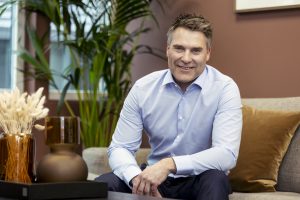Fashion to every corner of Norway
Let’s start with a riddle. What do all these places have in common?

Andenes, Askvoll, Askøy, Bjugn, Bjørkelangen, Brandbu, Brekstad, Bremnes, Brønnøysund, Eidsvoll, Elnesvågen, Fetsund, Finnsnes, Flisa, Fosnavåg, Gran, Hareid, Heimdal, Hokksund, Honningsvåg, Husnes, Jørpeland, Kolvereid, Kopervik, Kyrksæterøra, Leknes, Loddefjord, Måløy, Nordfjordeid, Norheimsund, Sand, Sandane, Sande, Sandnessjøen, Slitu, Smøla, Storslett, Stryn, Støren, Surnadal, Sykkylven, Tana, Tysnes, Ulefoss, Ulsteinvik, Vågå, Åfjord, Åmot and Årnes.
There’s more than one correct answer
One answer is that there’s no H&M in any of these places. Or that there is a Texcon shop in all of these places. You could also say that there’s a profitable Texcon shop in all of these places.
Norway is made up of urban settlements
In Europe, people live either in a town or in the countryside. In Norway, we live in urban settlements. According to Statistics Norway, there are now 990 urban settlements in Norway. In every one of these settlements, there are people who want cool clothes.
Regional development policy
Politicians generally agree on the basic principles of Norwegian regional development policy. Although they may disagree on policy instruments and priorities, all of the political parties want to reduce geographical differences, strengthen local communities and promote regional growth.
Exemption from customs duties
According to the Norwegian Customs Service, it is currently “only clothes, foods and other foodstuffs that are subject to customs duties.” Despite this, through the VOEC scheme, online shops based outside of Norway avoid paying duties on goods worth less than NOK 3000. That is definitely not good business policy, and it isn’t good regional development policy either. It’s high time something was done about it.
That’s why at Texcon, we’re calling for the government to abolish the customs duty on clothes – and at the very least to abolish the extremely unfair NOK 3000 limit, which makes for unfair competition.
Well-spread power and capital
One of the keys to a good regional development policy is to ensure that power and capital are spread across the country. Just the way we do at Texcon, I might point out. At Texcon, our capital isn’t piled up in Nesøya. And it’s not in the stock exchange in Stockholm either. Our share capital is spread right across the country – with more than 200 shareholders. And the same applies to power, which is just as evenly spread. At Texcon, decisions about products, prices, opening hours, locations and – not least – marketing, are made regionally.
Expert companies
At Texcon, you don’t have someone in an office in Oslo, deciding what should be sold in Bremnes, Ulset or Gran. It’s the talented local retailers and staff who are the experts in what the people in these places want.
Local profitability
Texcon makes sure that anyone who wants to run a profitable clothes shop gets access to expert knowledge, inspiration, benefits of scale and closer partnerships with suppliers. We also help with structure and streamlining, enabling our members to spend as little time as possible on administration and as much time as possible in their shop.
339 shops
Texcon posted its best ever results in 2023. At the moment, we have 339 shops, and if you put together all of the turnover from all of the shops in the purchasing partnership, only H&M is bigger than us. We are the people who know Norway best, and we are the best equipped for the future. As long as that future involves getting fashion to every corner of Norway.

